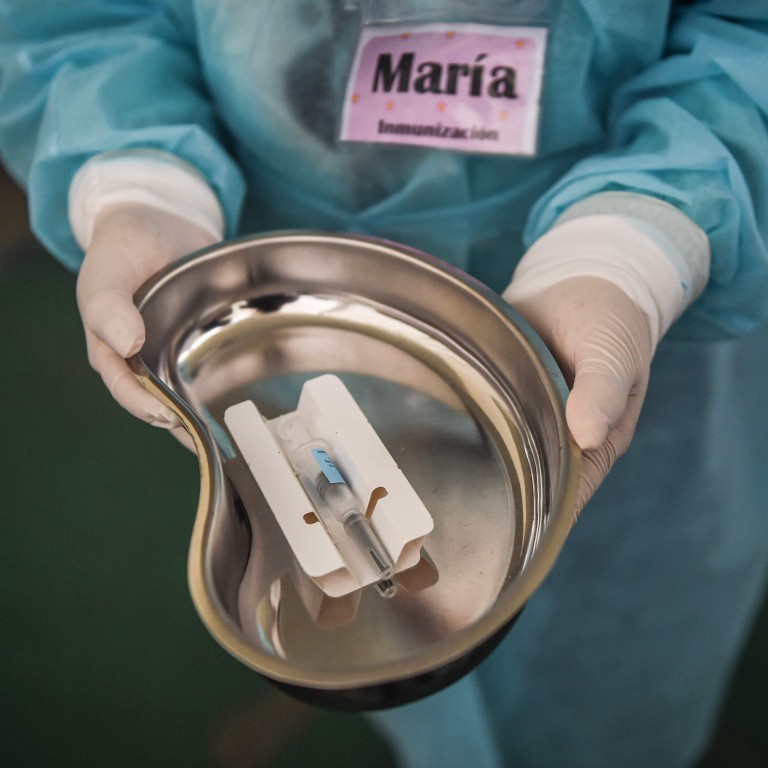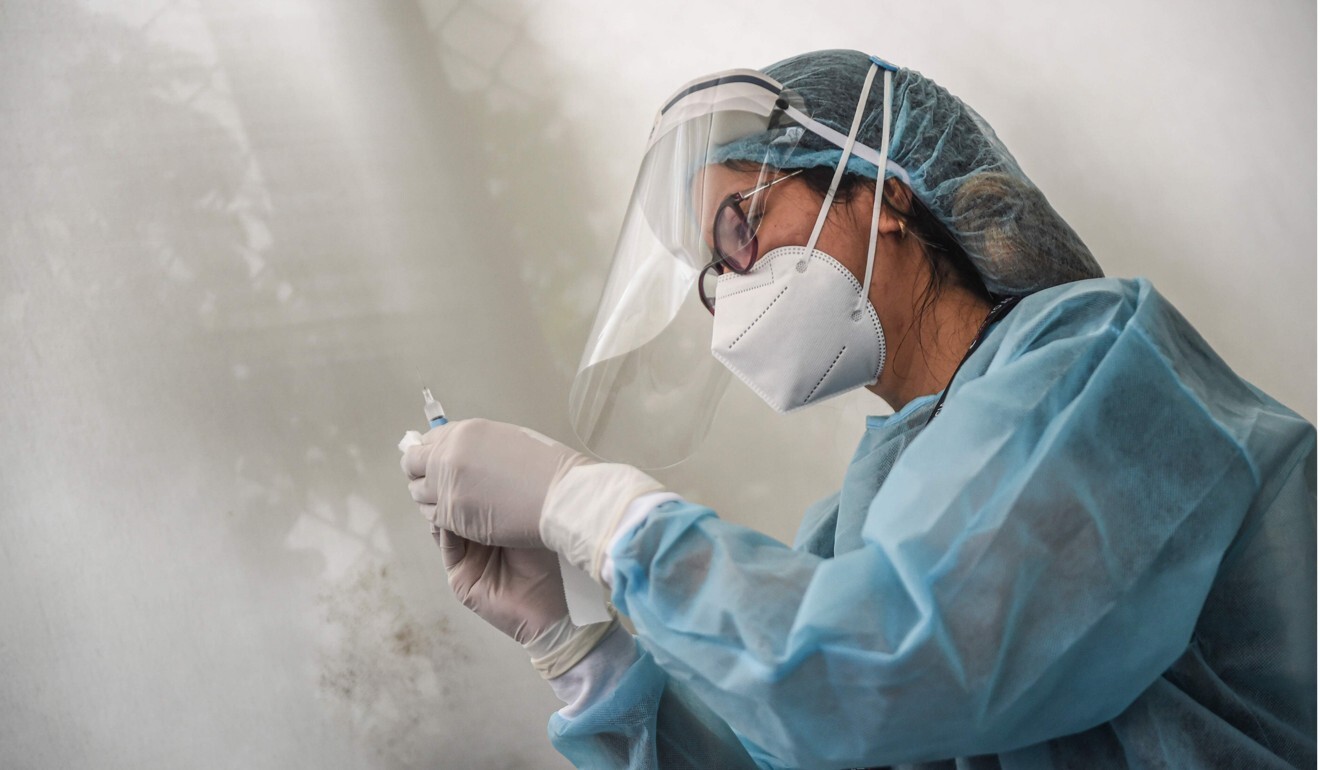
Coronavirus: Sinopharm vaccine undergoing regulatory review, report says
- Centre for Drug Evaluation reviewing company’s application to release one of its two candidates to market, Chinese news website says
- Products have been undergoing testing in 10 countries in South America and the Middle East
The report, on news website Jiemian and citing information from the Centre for Drug Evaluation, did not specify which of the two candidates developed by the company, formally known as China National Pharmaceutical Group, was being reviewed.
Sinopharm filed for approval to launch its product on November 25, before the UAE data had been published. The drug evaluation centre said on Wednesday it had agreed to review the application, the news report said.
Sinopharm did not immediately respond to requests for comment on Thursday.
One million Chinese injected with Sinopharm vaccine under emergency use scheme
Shanghai-based vaccine expert Tao Lina said it was possible the Sinopharm product might be granted conditional approval in the coming weeks.
“The conditions for Covid-19 vaccine approval might include requirements for further studies on safety and efficacy for groups like children and the elderly,” he said.

On Wednesday, Dimas Covas, the director of the Butantan Institute in the Brazilian state of Sao Paulo, which has a contract to produce the Sinovac product, said it was safe.
A shipment of 5.5 million doses of the vaccine was set to arrive in Sao Paulo on Thursday, taking the total in Brazil to 10.8 million.
The final-stage trials of CoronaVac began in Brazil in July and were later extended to Turkey and Indonesia. The South American country was the first to report its results.
David Hui Shu-cheong, an adviser to the Hong Kong government on Covid-19, said on Thursday the delay to the release of the Sinovac data meant its delivery would be postponed until February.
Professor Jin Dong-yan, a molecular virologist at the University of Hong Kong, said it was “not of much use” to know that the Sinovac vaccine had met the 50 per cent minimum requirement of efficacy without raw data being released.
Tao said it was possible that three Chinese vaccines could be granted approval for release to the market in China at the same time.
“It could put a lot of pressure on the company first to release data if their efficacy rates are not as high as the United States’ candidates,” he said.
US vaccine trials raise hopes Chinese products will prove effective
On the matter of CoronaVac’s efficacy rate being below those of others developed elsewhere in the world, Tao said: “We tend to be more conservative towards new vaccines. It’s unrealistic to set a goal of 90 per cent efficacy in the initial stage.”
Chinese scientists knew that their so-called inactivated vaccines might not be as effective as the mRNA alternatives, he said.

